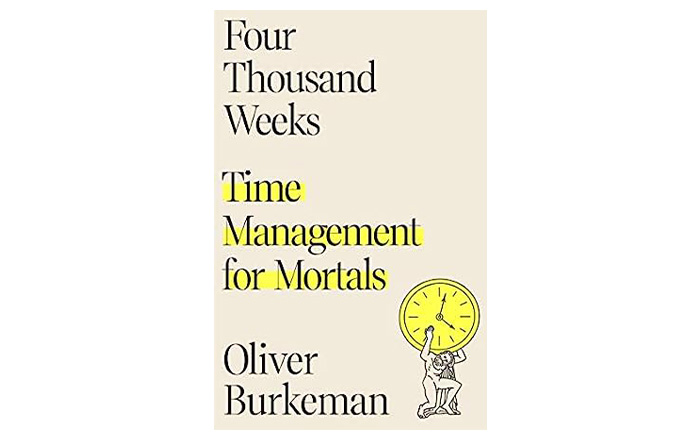Where to find this idea:
Four Thousand Weeks: Time Management for Mortals by Oliver Burkeman
Productivity advice can often seem daunting — the constant push to achieve more, work faster, and focus better. However, the moment you realize that doing everything is not only impossible, but also unnecessary, you unlock a new level of understanding.
Oliver Burkman’s book, Four Thousand Weeks, powerfully emphasizes this concept of finitude. We don’t merely have a limited amount of time in our lives, we ARE the embodiment of that limited time. This realization may initially induce anxiety, pressuring us to achieve and experience as much as we can, to live life to its absolute fullest. It can lead to a persistent worry that we’re squandering the precious time we have.
But consider this: what if this understanding instead propels us to do less and focus on what truly counts? What if it drives us to prioritize the tasks that genuinely matter, shaping our productivity with this perspective at the forefront?
Let’s delve into 5 tools that will help you embrace finitude with confidence.
1. Adopt a “fixed volume” approach to productivity
This means putting constraints on both your tasks and your time.
Keep 2 to-do lists, one that’s “open” and another that’s “closed.” Use your open list as a brainstorming space for all the tasks that pop into your mind. The closed list, however, is your focused zone. Limit it to a few tasks (no more than 10) that you’ve pulled from your open list to work on. Resist the temptation to add new tasks to your closed list until you’ve completed the ones already there.
Also, define and respect your time boundaries. Let’s say you work from 9 to 5. Once the clock strikes 5, you’re done (like really done).
2. Serialize, serialize, serialize
Focus on one big project at a time, or one work project and one personal project. Try not to move to a new one before you finish what you’ve started.
3. Decide in advance what to fail at
Strategically pick some aspects of your life that you’re willing to put on hold. Even important stuff can take a backseat sometimes. Maybe you just do the bare minimum at work for a bit while you give your kids some extra attention. When you decide what to suck at on purpose, there’s no shame in your game. Rather than striving for perfect work-life balance, embrace the imbalance, knowing that what’s neglected now will get attention later when you shift your priorities.
4. Focus on what you’ve already completed, not just on what’s left to complete
Start your day with a blank “done list” that you gradually fill with tasks you’ve completed throughout the day. Focusing on what you have already completed, not only what is left to complete, can be a great motivator.
5. Practice doing nothing
Okay, embracing stillness is one of the hardest tasks out there. It stirs up a whirlwind of guilt and unease as we battle the feeling of being unproductive, always on the hunt for something to do just to keep ourselves busy. We would rather do things for the sake of doing than do nothing. So, set a timer, sit down and simply exist for a few moments. How’s that feel?

